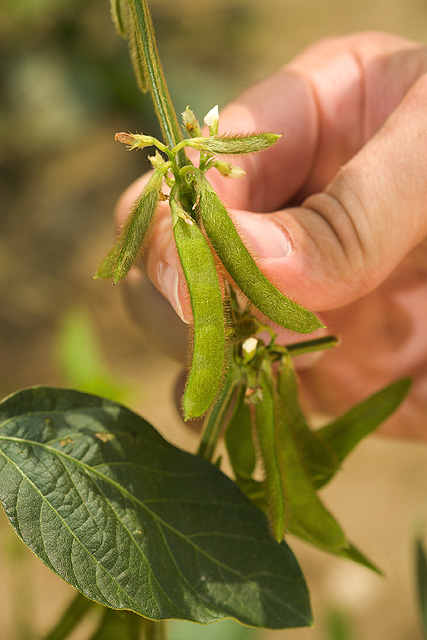In countries that are poor, which often means outside natural breadbasket climates, the organic food process means cycles of famine and starvation. Science can help with that. Like humans, plants have a natural ability to adapt to unfavorable weather conditions but nature is only about individual survival, and humans need to think about yields if we're going to keep land use limited.
A new experiment in soybeans is genetically engineering soybean plants in ways that improve their resistance to differing stresses like drought, heat, and floods. Soybeans have evolved to manipulate cells guard cells that control the opening and closing of stomatal pores on the surface of their leaves, sepals and flowers to become more resilient during harsh weather conditions.

Soybean pods. Credit: Peggy Greb USDA
That has limits. When there is a drought, the plant closes its stomata to retain water but when there is heat stress as well, the plant can’t breathe. Yet some species of soybean plants have learned to cool themselves by only opening the stomata on their reproductive surfaces (the flowers and sepals) while closing the stomata on their leaves to retain water, allowing the plant to cool itself and retain the water it needs to hydrate, ultimately keeping it alive long enough to produce its seasonal yield.
Learning about what soybean genes create plants most likely to withstand a combination of stress conditions can open up insights into lots of important grains used worldwide. It can't stop environmental activists from opposing science but it can at least stop nature from not being suited to various weather tasks.




Comments